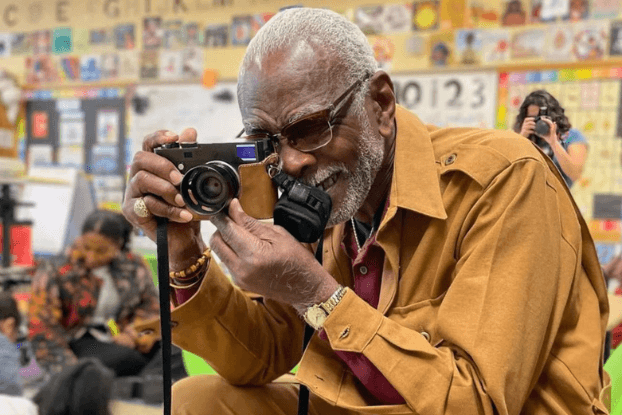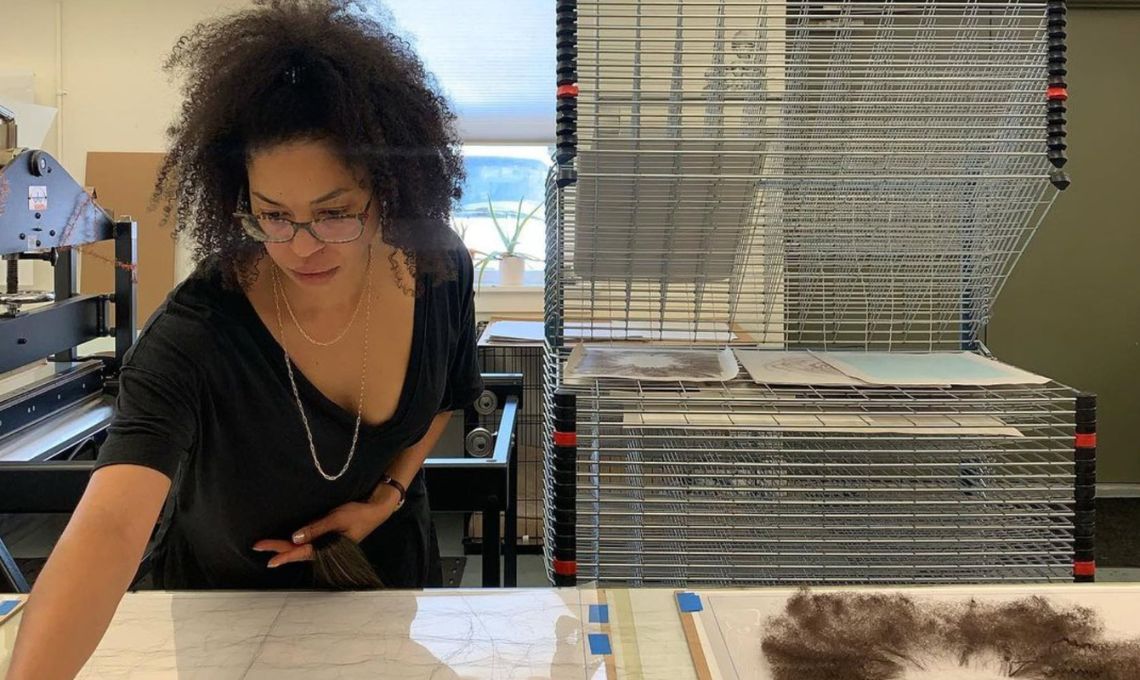Understanding difference — and commonalities — through art
For visual artist Lisa Jarrett, art is about much more than making objects. It is about exploring identity, forging connections, creating community and providing opportunities.
Jarrett is one of three Oregon visual artists chosen as a 2023 Hallie Ford Fellow in the Visual Arts. The $35,000 unrestricted fellowships are awarded to artists who have demonstrated a depth of sophisticated practice and potential for significant future accomplishment.
“I make objects exploring the politics of difference specifically within the context of Black femininity in the U.S.,” Jarrett explains, “and I use Black hair as an entry into that conversation.” Jarrett’s materials range from human and synthetic hair to accessories, products, and aesthetics found in places like beauty supply stores and Black salons.
Black hair has a long history of politicization. It also has a rich history of connection and care within Black families and communities, including entrepreneurship and economic independence for Black women.
Community involvement
Creating object-based art isn’t Jarrett’s only priority. Her active social practice relies on using art-related experiences to support and empower children and families in under-resourced communities.
In 2014, Jarrett co-founded KSMoCA (Dr. Martin Luther King Jr. School Museum of Contemporary Art) at Dr. Martin Luther King Jr. Elementary School in Northeast Portland. KSMoCA is a contemporary art museum that functions inside and alongside the school’s community. The social practice project teaches young people about careers in the arts; connects them with a diverse range of international artists through workshops and lectures; hosts rotating exhibitions; and maintains a permanent collection. The collaborative project also connects Portland State University students as mentors, creating opportunities to build relationships that can humanize college and make it a more relatable goal for the children.
“Most of us as artists really believe that the arts have the power to be a transformative experience for young people,” Jarrett says,“and we need to be fostering that creativity instead of squelching or minimizing it.”

Celebrated photographer Richard Brown hosted a workshop for students at the Dr. Martin Luther King Jr. School Museum of Contemporary Art at an elementary school in Northeast Portland. The contemporary art museum functions inside and alongside the school’s community. PHOTO: @KSMoCA
A turning point
Jarrett’s work began specifically addressing race when she was in graduate school at University of Montana. This turning point in her career came as she contributed her work to an exhibit at the Holter Museum of Art that transformed white supremacist texts into thought-provoking works of art. She then started exploring how stereotypical representations of Black femininity worked within popular culture.
“It’s the way that the human condition plays out in this identity space of Blackness, femininity, and hair,” she says. “It’s my way of continuing to stay interested in the world that I live in and see what I can do with art.”
To see Jarrett’s work, visit the Black Artists of Oregon exhibit at the Portland Art Museum or contact Russo Lee Gallery in Portland.
Applications for Hallie Ford Fellowships in the Visual Arts open each January and close mid-February. Awards are announced each July. For more information, visit tfff.org/visual-arts/hallie-ford-fellows.


